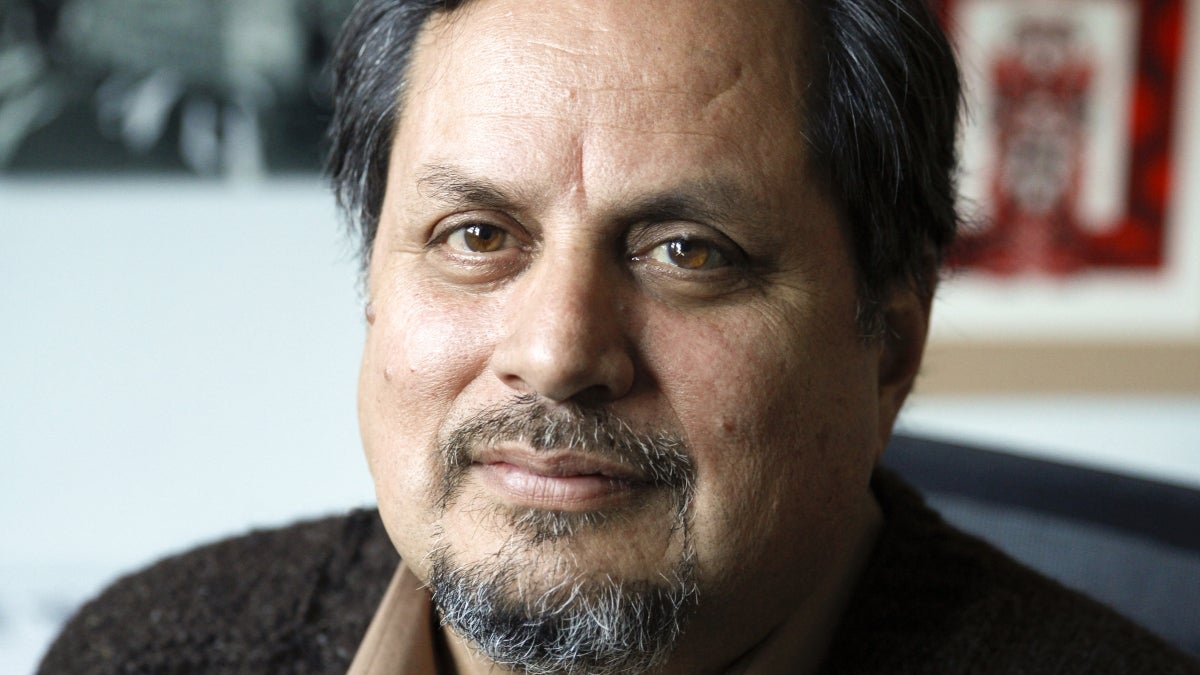Louis Mendoza to lead School of Humanities, Arts and Cultural Studies

Louis Mendoza, who most recently has served as a professor and administrator at the University of Minnesota, has accepted the position of director of ASU’s School of Humanities, Arts and Cultural Studies (SHArCS). He begins his new role on July 1.
“We are delighted to have Dr. Mendoza join ASU and know that he will support President Michael Crow’s mission of paired academic excellence and student access,” said Marlene Tromp, dean of ASU’s New College of Interdisciplinary Arts and Sciences, the core college on the West campus. SHArCS is one of three schools in New College. “I am confident Dr. Mendoza will be an excellent leader and role model at ASU.”
Mendoza received his doctorate in English with a concentration in ethnic and Third World literatures from the University of Texas at Austin. Originally from Houston, he has taught at the University of Minnesota as professor of Chicano and Latino studies for the past decade, and served as associate vice provost in the Office for Equity and Diversity from 2008-2014.
Mendoza also taught in the Department of English at the University of Texas at San Antonio, where he was an associate dean in the College of Liberal and Fine Arts and interim director of the Hispanic Research Center. His research interests include Chicana/o literary and cultural studies, U.S. immigration literature, prison literature and oral histories. The author and editor of six books and numerous articles, in 2012 Mendoza published two books with the University of Texas Press based on his 2007 Journey Across Our America research project on immigration and the Latinoization of the United States.
“I was attracted to the opportunity to serve as director of SHArCS because the deep thought that was put into the formation of the school was evident and highly appealing in the way it brings together and puts in conversation an exciting array of disciplines that are positioned to chart the future direction of the humanities and the arts,” Mendoza said. “SHArCS’ mission to train students to critically examine, comprehend and enunciate the diversity of human experience is essential in today’s world, and aligns well with my experience and values as a teacher-scholar and administrator.”
SHArCS offers degrees in American studies; applied science; interdisciplinary arts and performance; interdisciplinary arts and sciences studies; English; history; Latin American studies; philosophy, religion and society; ethnicity, race and first nations studies; Spanish; and women and gender studies. These programs provide opportunities for intellectual dialogue between students and faculty, and challenge students to explore the diversity of human history, culture, thought, literature, language and experience.
“Along with its excellent degree programs, the presence of The Center for Critical Inquiry and Cultural Studies (CCICS) within SHArCS demonstrates the institution’s commitment to the mutually constitutive and synergetic relationship between research, teaching and the public mission of institutions of higher learning to improve the human condition,” Mendoza said. CCICS works to promote and sustain innovative relationships and collaborative research among ASU faculty members.
“Dr. Mendoza’s extensive administrative experience is marked by a clear commitment to new program development and to the fostering of diversity,” said Dan Bivona, associate professor of English in the College of Liberal Arts and Sciences on ASU’s Tempe campus, who has been serving as interim director of SHArCS for the past year. “He expressed enthusiastic interest in the SHArCS position because of the promise it holds to make maximal use of his talents and experience. Dr. Mendoza is a committed scholar of international reputation in the field of Chicano studies whose work has important resonance, especially in the United States and throughout Latin America.”
“Though I have had numerous administrative opportunities in my career, I was seeking an opportunity to lead an academic unit in the humanities that is innovative, interdisciplinary and forward-looking, and SHArCS certainly fit that profile,” Mendoza said. “I also appreciate the commitment of New College to promote close faculty-student relationships and provide students with opportunities to integrate curricular with extracurricular life through activities including internships and service-learning opportunities in local businesses and organizations. Programs like this make the relevance of higher education clear to students of all backgrounds.”
ASU’s New College combines a small-college experience with the resources of a top-tier research university, enabling students to work on cutting-edge projects with professors who are nationally recognized experts in their fields. In addition to SHArCS, New College houses the School of Mathematical and Natural Sciences and the School of Social and Behavioral Sciences.